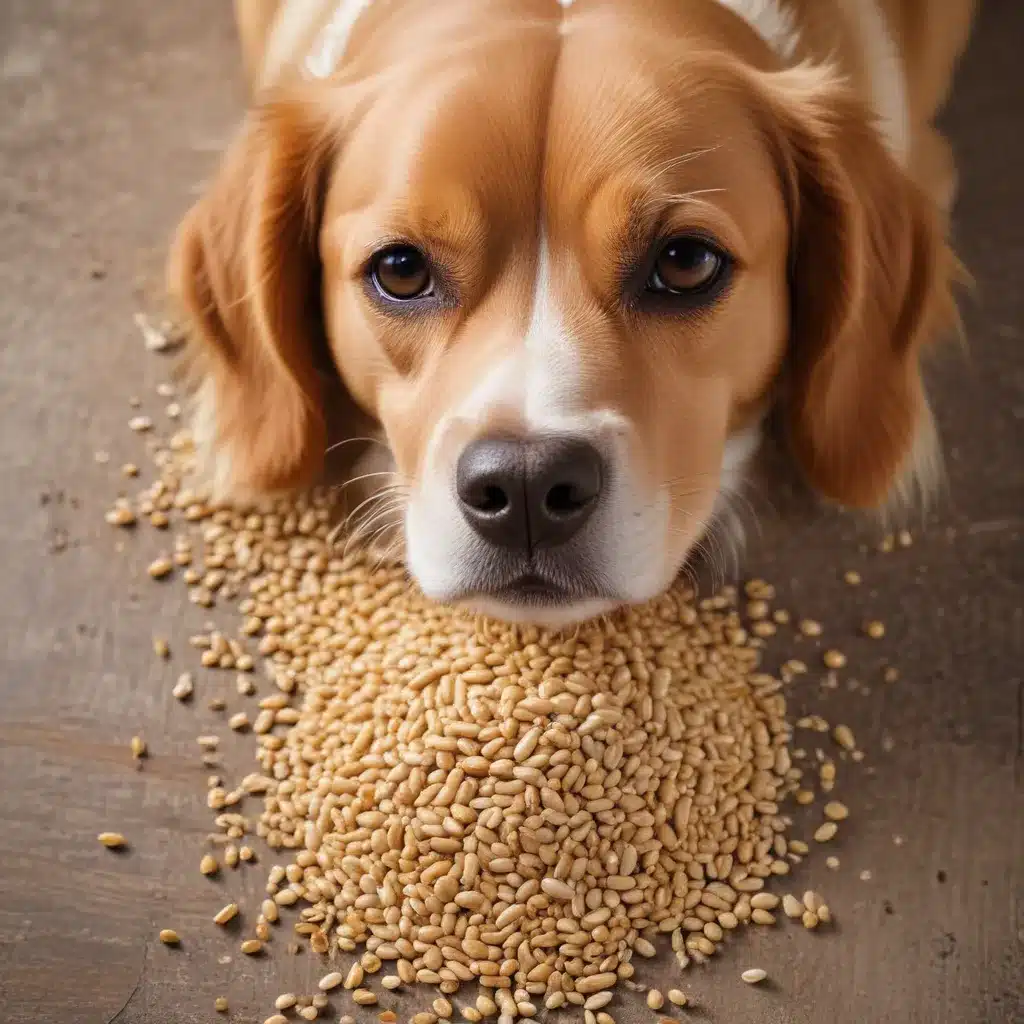
The Grain-Free Debate: What’s the Big Deal?
As a proud dog parent, I’ve always been passionate about providing my furry best friend with the absolute best nutrition. So when the whole “grain-free” craze hit the pet food market, I’ll admit, I jumped on the bandwagon. I mean, if it’s good enough for us humans, it’s got to be great for our canine companions, right? Boy, was I in for a rude awakening.
It all started a few years back when the FDA dropped a bombshell – they were investigating a potential link between certain grain-free dog foods and a serious heart condition called canine dilated cardiomyopathy (DCM). Suddenly, the pet parent community was in an uproar, with everyone scrambling to figure out if they were slowly poisoning their pups. The FDA’s investigation was far from conclusive, but the damage was done. Grain-free diets were now public enemy number one, and dog owners like myself were left wondering – are grains actually bad for our furry friends?
The Surprising Truth About Grains and Dogs
Let’s start with the basics. Contrary to popular belief, dogs don’t actually need grains in their diet. In fact, according to Dr. Richard Patton, PhD animal nutritionist, “Dogs don’t need grain of any kind. They do require small amounts of soluble carbohydrate, which can be found in meat in the form of muscle glycogen.”
So if grains aren’t essential, why were so many pet parents opting for grain-free foods in the first place? Well, it turns out that the whole “grain-free” trend was largely driven by human dietary preferences, not actual dog nutrition needs. As the Rover.com article points out, “When the paleo diet took off in the early 2000s, pet food marketers made a good bet that shoppers would transfer their new eating philosophies onto their dogs.”
But here’s the kicker – just because a diet is grain-free doesn’t necessarily make it better for our canine companions. In fact, the real issue seems to be that many grain-free dog foods are simply replacing those grains with other ingredients that may be just as problematic, like peas, lentils, and potatoes. As NBC News reported, the FDA’s investigation has found that over 90% of the dog foods linked to DCM cases were grain-free, and 93% contained peas and/or lentils.
So it’s not the lack of grains that’s the issue – it’s the questionable substitutes that some pet food companies are using to create their “grain-free” formulas. As the WeFeedRaw article explains, “Dogs are ill-equipped to handle these kinds of ingredients in such large quantities. While healthy and naturally grain-free raw food brands… don’t contain any of these ingredients, many pet parents are still spooked enough to wonder if they should be adding grains to their dogs’ bowls.”
The Surprising Benefits of Grains (Yes, Grains!)
Now, before you go tossing out all your pup’s grain-free kibble, let’s take a moment to consider the potential benefits of grains in a dog’s diet. While they may not be an essential nutrient, grains can actually provide some valuable nutritional advantages.
As Rover.com explains, “Though lacking in some essential amino acids, certain grains contain significant amounts of protein as well as dietary fiber, vitamins, and minerals. The high carbohydrate content of most grains also contributes to the energy density of a dog’s diet.”
So in moderation, grains can be a perfectly healthy addition to your pup’s plate. The key is striking the right balance – focusing on high-quality animal proteins as the foundation, and incorporating grains as a supplementary source of nutrients and energy. As the WeFeedRaw article advises, “If you choose to include grains in your dog’s diet, it’s advisable to use healthier options such as brown rice, quinoa, and oats.”
The Importance of Listening to Your Vet
At the end of the day, when it comes to your dog’s diet, you should always defer to the expertise of your veterinarian. While grains may not be an essential nutrient, they aren’t inherently “bad” for dogs either. The real issue seems to be with the specific grain substitutes that some pet food companies are using in their grain-free formulas.
As Dr. Jerry Klein, the Chief Veterinary Officer of the American Kennel Club, advises, “As a general rule of thumb, the best thing you can do for your dog’s dietary health is to consult your veterinarian. Together you can weigh the pros and cons of your dog’s diet, consider whether grain-inclusive dog food or grain-free dog food are right for your dog, and, if necessary, monitor your dog for signs of DCM.”
So don’t be afraid to have an open dialogue with your vet about your pup’s nutritional needs. They’ll be able to provide personalized guidance on the best diet for your furry friend, whether that includes grains or not. After all, at the end of the day, our goal as responsible pet parents should be to keep our beloved companions happy, healthy, and thriving. And with the right nutritional guidance, we can do just that.
Ready to take the next step in your dog’s health journey? Check out ihavedogs.com for all the resources and support you need to keep your pup at their absolute best. From nutrition advice to helpful tips and tricks, we’ve got you covered!

